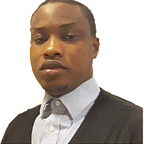A Cursory look at Universal Health Care (UHC) in Africa
Examining the journey so far in Africa and the challenges of achieving universal health coverage in Nigeria
Governments around the world list universal healthcare as one of their key deliverables to their people. In climes where the system “just works”, universal health cover is near 100%. This is achieved through efficient taxation systems and the willpower to overcome the challenges prevalent in healthcare systems.
Universal Health Care (UHC) commits to providing your healthcare needs and that of your dependants as well at little or no cost to you
What is Universal Health Care (UHC)
In simple terms, Universal Health Care (UHC) refers to the provision of quality healthcare to people who need it at little or no cost to them. This means that regardless of who you are or where you are from, UHC commits to providing your healthcare needs and that of your dependants as well.
The case of two African countries leading the pack in the provision of Universal Health Care
The case of Ghana
In the last two decades , the number of African countries taking Universal Health Care seriously has been on the rise. Take Ghana for instance, a law was passed in 2003 creating a National Health Insurance Scheme to cover all Ghanaians. A 2.5% tax on selected goods and services is levied to fund the scheme, making it possible for a beneficiary to access health care for covered services at no cost. This law was put in place to eliminate the cash and carry system that was prevalent where access to healthcare would only commence after a “cash deposit” had been made (even in emergencies!)
With a population of about 12.2 million people (2017 statistics), over 90% of Rwandans have health cover with the poorest members of the population accessing healthcare at zero cost while the more affluent members of the population pay an annual premium
The case of Rwanda
In Rwanda, a country in East Africa, the story is similar to the case of Ghana were the Government of President Paul Kagame instituted Universal Health Care in 2008. With a population of about 12.2 million people (2017 statistics), over 90% are covered with the poorest members of the population accessing healthcare at zero cost while the more affluent members of the population pay an annual premium (total premiums paid funds almost 50% of the health insurance scheme) and also co-payment for a number of services. As a result, they have one of the lowest rates of maternal and infant mortality in the entire African continent.
The challenge of Universal Health Cover (UHC) in Nigeria
“In Nigeria most hospitals will not administer care until some form of payment guarantee is provided (preferably initial cash deposits)”
In Nigeria, the cash and carry system is more prevalent since the total health insurance coverage in the country is under 10%. To put this in perspective, a patient in need of emergency medical care is brought into a hospital and while on the clock (literally, life and death situations), most hospitals will not administer care until some form of payment guarantee is provided (preferably initial cash deposits). Unfortunately, a lot of lives have been lost needlessly to this system.
In 1999, the Nigerian government passed the National Health Insurance Scheme Act, to provide Universal Health Cover (UHC) for all Nigerians. Plagued by funding challenges however, the scheme covers less than 5% of the country’s population. To put this in perspective, Nigeria has a population of 200 million people, less than 5% of this equates to less than 10 million people with access to the National Health Insurance Scheme.
With a lot on the government’s plate competing for its limited resources, the Nigerian people need to once more step up to the challenge and look for creative ways to solve the healthcare crisis. One such option is to come together in numbers and buy health insurance in blocs from the private HMO’s. Health insurance, like any other type of insurance is a numbers game. The more people in a bloc, the higher the pool of funds available and the greater their negotiating power with the health insurance providers. I have been a party to conversations around this strategy where a bloc of 1,000 people can obtain health insurance packages for as low as 7,000 Naira (approximately $20 USD) for a whole year! Now while such packages may not cover cancer care and major surgeries, looking at the statistics of the most frequently occurring ailments treated in hospitals daily, such plans cover for them and much more.
In conclusion
Many people in Nigeria brand themselves as their own local governments because they provide the bulk of their daily utilities (power needs, housing, water, cooking gas etc.) and as such may not be willing to take on the additional burden of annual healthcare premiums. The long term costs however, of not prioritizing healthcare is humongous. People have been wiped out financially from a single medical ailment within the family due to out of pocket payments for medical care. In the long run, the government may be able to solve the funding challenges but waiting for this before taking meaningful steps is akin to sitting ducks!
